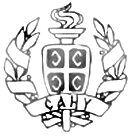Prikaz osnovnih podataka o dokumentu
Француско-дубровачке књижевне везе у истраживањима Павла Поповића
French-Ragusan literary connections in Pavle Popović's research
| dc.creator | Ђорђевић, Бојан | |
| dc.date.accessioned | 2020-10-29T14:42:57Z | |
| dc.date.available | 2022-01-03 | |
| dc.date.issued | 2019 | |
| dc.identifier.isbn | 978-86-7025-816-7 | |
| dc.identifier.uri | https://dais.sanu.ac.rs/123456789/9353 | |
| dc.description.abstract | У раду се анализирају студије Павла Поповића у којима се бавио компаратистичким истраживањем француско–дубровачких књижевних веза, као и указивањем на нека места у Поповићевом опусу где је, такође, дао податке о француском културном и књижевном утицају на књижевност старога Дубровника. | sr |
| dc.description.abstract | In very rich Raguseological opus of Pavle Popović, significant part belongs to comparatistic research. He was conducting them with the aim to determine templates or models for works of Ragusan writers, thus setting the foundation for more objective critical evaluation of those works and their authors, but also of the literature of old Dubrovnik as a whole. In his comparative approach to Ragusan literature, Pavle Popović wanted to show that some of the highest values of the European literary tradition were built in its corps. In this comparatistic effort, Pavle Popović seldom – only in few occasions – studied French-Ragusan literary and cultural connections and influences. At the very beginning of his work on literary-historic research of Ragusan literature, in 1904, Pavle Popović set out to observe Držić’s comedies in Molierean key (Marin Držić and Moliere). Popović made his comparative analysis in order to prove value of Držić’s comedies! Namely, he wanted to draw attention to cultural importance of Držić’s leaning on classical sources, because it is a fact that even in small Dubrovnik, and not only in great France, there was spiritual atmosphere which enabled a writer to reach high levels when it comes to choice of his sources. Six years after this study, Pavle Popović took to finding source of Ragusan farce from 1792, known under the name Pokrinokat. First he provided content of the French original, and then gave data about many versions of this very popular farce, and about its French, but also about its Latin, German and Italian adaptations. Then, using proven methodological procedure, after huge preparation work which included comparison of Ragusan adaptation with numerous versions of the source, Popović undoubtedly determined that Pokrinokat was an adaptation of Lawyer Patlen version from 1700 (played for the first time in 1706), written by David-Augustin de Brueys. Five years later, Popović published this study in France, in somewhat shorter form. It appeared in the most difficult days for Serbian people in World War I, in late autumn of 1915, when Government, Parliament and army, with part of the population, left for refuge which will take them across Albanian mountains to Corfu and Thessaloniki. Popović’s intention with this article was to show the French, most loyal Serbian allies, the historical roots and strength of French-Serbian literary and cultural relations, and their reflection in the tiny Republic of Ragusa which – as can be seen from the title of Popović’s article – was supposed to be a point of juncture of Serbian and Croatian culture. Successfully applied comparatistic method enabled Pavle Popović to be sure of his critical evaluations of Ragusan literature, which is confirmed by his evaluation of drama works of Nikola Nalješković. Until Popović, Nalješković’s farces were being mainly underestimated, and their author was viewed as not too talented predecessor of Marin Držić. Only in the first farce, the so-called Comedy V, attention was paid to echoes of daily life in the 16th century Dubrovnik, while the third farce, Comedy VII, was viewed as Nalješković’s unsuccessful attempt to write a “real” erudite comedy. Especially underestimated was Nalješković’s second farce, the so-called Comedy VI. And it was exactly Pavle Popović who, thanks to his knowledge of tradition of farce which he demonstrated in his study on Ragusan adaptation of Lawyer Patlen, drew attention to this Nalješković’s farce, writing about Nalješković’s drama works in his Overview of Serbian Literature. | en |
| dc.language.iso | sr | sr |
| dc.publisher | Београд : Српска академија наука и уметности | sr |
| dc.rights | embargoedAccess | sr |
| dc.rights.uri | https://creativecommons.org/licenses/by-nc-nd/4.0/ | |
| dc.source | Периодизација нове српске књижевности : поводом 150. годишњице рођења Павла Поповића (16. IV 1868 - 4. VI 1939) | sr |
| dc.subject | Pavle Popović | sr |
| dc.subject | the literature of old Dubrovnik | sr |
| dc.subject | works of Ragusan writers | sr |
| dc.subject | Ragusan literature | sr |
| dc.subject | French-Serbian literary and cultural relations | sr |
| dc.subject | French literature | sr |
| dc.title | Француско-дубровачке књижевне везе у истраживањима Павла Поповића | sr |
| dc.title | French-Ragusan literary connections in Pavle Popović's research | en |
| dc.type | conferenceObject | sr |
| dc.rights.license | BY-NC-ND | sr |
| dcterms.abstract | Đorđević, Bojan; Francusko-dubrovačke književne veze u istraživanjima Pavla Popovića; | |
| dc.citation.spage | 53 | |
| dc.citation.epage | 61 | |
| dc.description.other | Научни скупови / Српска академија наука и уметности ; књ. 178. Одељење језика и књижевности ; књ. 31 | sr |
| dc.identifier.cobiss | 525336725 | |
| dc.type.version | publishedVersion | sr |
| dc.identifier.fulltext | http://dais.sanu.ac.rs/bitstream/id/39306/rad5.pdf | |
| dc.identifier.rcub | https://hdl.handle.net/21.15107/rcub_dais_9353 |

